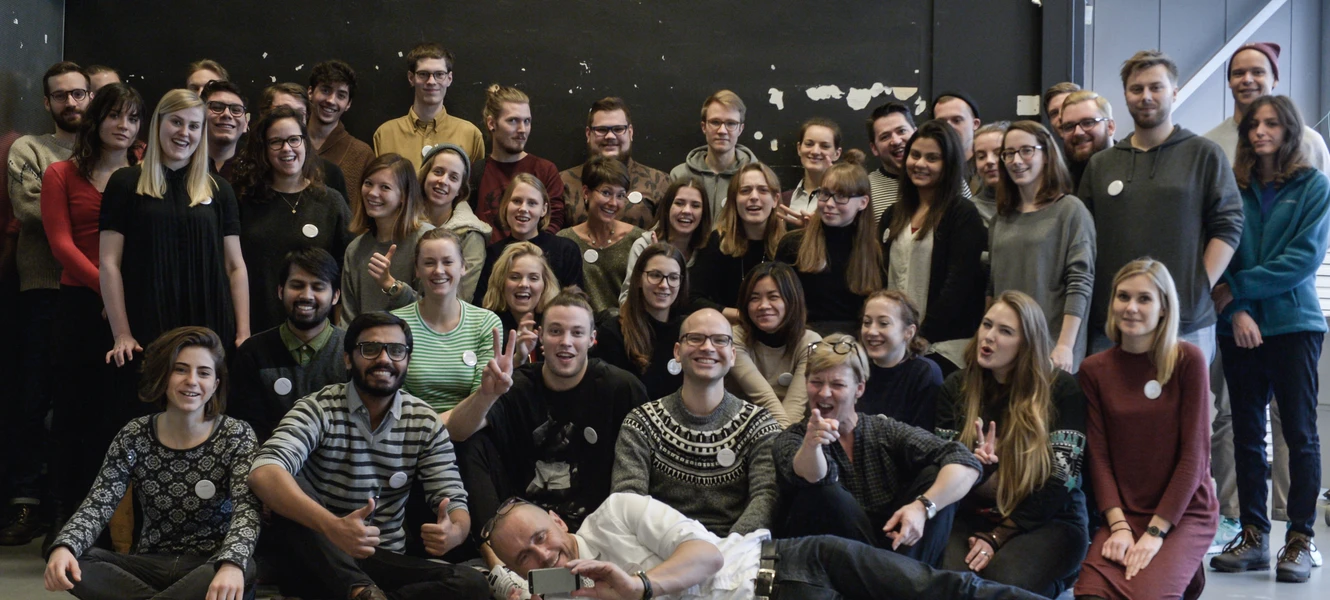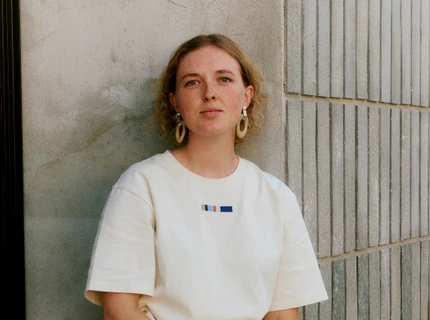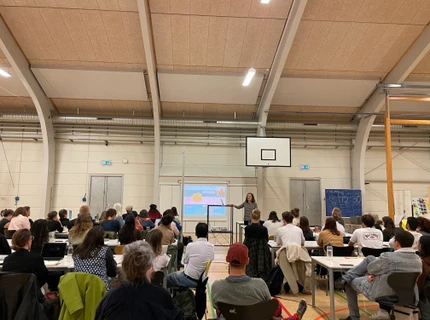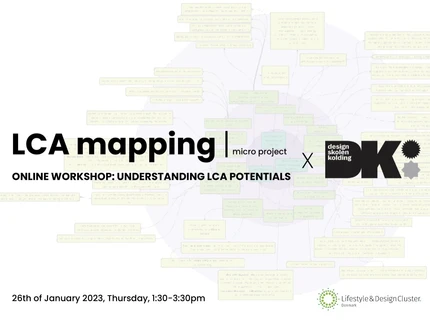
The city of Kolding becomes sustainable
Here are some of the challenges that await the students: How might we create a sense of community around the activity of making repairs and ensure that we are able to share knowledge across organisations? How might we reduce food waste while helping hungry citizens of Kolding City? How might we initiate behavioural changes that meet the challenges of traffic congestion mornings and afternoons?
”Focusing on the four subthemes of Learning, Living, Moving and Eating we want to create specific projects that activate meaningful sustainable changes. This might be specific products, changes of existing habits and mindsets, and new ways of communicating sustainable practices. The key is that we turn ideas into actions that we can subsequently implement in real life,” explains Project Manager and Head of the Lab for Sustainability and Design at Kolding School of Design Lykke Kjær.
Indeed implementation is key. One of the main objectives of the DesignCamp is to create impact and change, and this time, funds have been set aside in advance to implement some of the projects in the months after the DesignCamp.
Kolding city as laboratory
DesignCamp17’s laboratory is the city of Kolding. A city with people, institutions and companies that can be mirrored in cities around the world.
“Working specifically with one city, we want to create real design solutions that we can scale to meet the world’s collective sustainable challenges. Kolding Municipality already works strategically with design and knows that design can make a difference, so to us this is the perfect starting point,” says Lykke Kjær.
Why use design?
Design is about creating products and services that benefit users and improve the bottom line of companies. Yet, design is also a strategic tool to set the direction for an organisation. Through user-studies, visualisations and constant prototyping, design can provide overview and knowledge, establish possible future scenarios, and connect people and professions. All of these are essential components when an organisation wants to become (more) sustainable.
Presentation & Exhibition
The students present their concept ideas on Friday 20 January. The Presentation, which is also an exhibition of the student projects, is followed by a workshop. The objective of the workshop is to allow students and partners to work together to identify and address possibilities and challenges of implementing the concepts in real life.
Partners
On the team are various departments from Kolding Municipality, including Nicolai Cultural Complex, Kolding Language School, Børnehaven Løvetand (kindergarden) and Brændkjærskolen public school. Also participating are energy supplier EWII, Kolding Food Aid, Responsible Procurement, REMA 1000 supermarket and the Agerland Commune.
DesignCamp2017 is organised in collaboration between Kolding School of Design, D2i - Design to innovate and funded by Syddansk Vækstforum, EWII and the EU Social Fund.
#designcamp17 #entrepreneurship #sustainability
“2015-18 we have decided to dedicate our annual DesignCamp to our strategic focus areas which are Social Inclusion, Sustainability and Play & Design. This year it is all about creating sustainable actions!”


